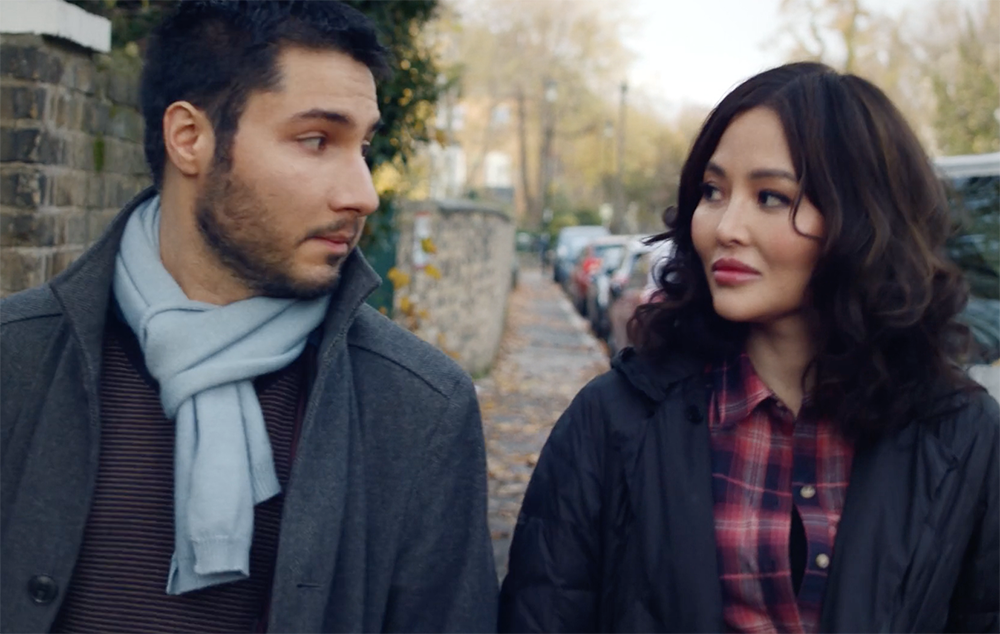“Green Lanes” is a 15-minute short written and directed by Güni Koçak, who also stars in the film. Shorts can be a great medium for film, especially when developed well. But seldom have I seen a short that captures and runs with so many emotions during their run as this one. “Green Lanes” feels like a family drama, a case for redemption, and, at the same time, the warm touch of a friend when you really need it. It’s as complete and whole as a feature film with 1/10th the run-time and budget. This is a film you feel better after watching, a testament to its reach.
What works about this film is its cinematography and scope, both of which enhance its narrative. It opens with an elderly man, Cem Demir (Nej Adamson) washing his hands and feet before praying to Allah. We see his daily ritual of checking on his wife, Emine (Fisun Burgess), who dreams of their son Yusuf (Director Koçak), whom they haven’t seen in a while. That is until the day that Yusuf shows up with his Chinese girlfriend Fiona (Elizabeth Tan), and a family that has hid from a terrible secret at first implodes—and then ultimately heals—in a beautifully believable and realistic way.
It’s important to note that while “Green Lanes” opens with prayer, this is not a religious film. What this film is is a human one, one that bridges the gaps of culture and time to tell a story all can understand. The Demir’s have suffered a tragedy, the death of their other son, a boy we never see but who exists only as a memory. That that memory is painful, and has nearly torn this family apart is the early point of the narrative.
We see Yusuf and his father barely talk, and Emine cannot think of her lost son lest she suffer dizziness. Yusuf quips in one scene she has ‘lost her mind;’ but it’s so much more nuanced than this. Speaking from the position of a family who has suffered something similar, this movie touched me singularly. “Green Lanes” is not a journey but a destination. Its emotions are real, as are its characters’ actions.
The acting in the film is stellar, with Adamson and Koçak tasked with the heaviest lines, and they deliver. What is workable about the dialogue is that it’s real; this isn’t a film full of platitudes, but one of hard discussions, and characters often acting out of anger and hurt. It’s approachable. It deals with some cultural issues affronting its Turkish family, yet weaves these into a narrative of loss and pain that is real and palpable. Healing is the point of Koçak’s narrative; nothing more and nothing less. That its healing is brought in part by an outsider in the form of Fiona’s Tan is apropos. It often takes love to show us how to right our wrongs, even when they’re not our fault.

The rest of the parts of the short are good too, namely the score, which trickles gentle pianos and hopeful rhythms over the film, and the cinematography by Michael Spry which is clear and bright; it gives the film an everyday feel that makes this feel like real life.
“Green Lanes” is filmed aptly, and looks and feels like a production that cost much more than £5,000 to make. Its London neighborhoods feel authentic, and the camera knows when to linger and when not to. It opens and ends on similar notes; but what has taken place within the confines of the film transcend the narrative to become spiritual. The film’s pièce de résistance is a long-needed talk between Yusuf and Cem, but the rest of it is fitting too. By the time the last frame falls you realize you’ve stumbled upon something great; “Green Lanes” is a connection to the human condition that transcends all else.
All-in-all, “Green Lanes” is a great film. It’s filmed with care and passion, and shines a ray of hope on tragedy in a believable way. From watching this it’s clear Koçak has much to offer the world of cinema, and I’d love to see more from him, especially in the way of a feature film. “Green Lanes” is a high recommend should you get the chance to watch it.
You can watch the trailer for the film below: